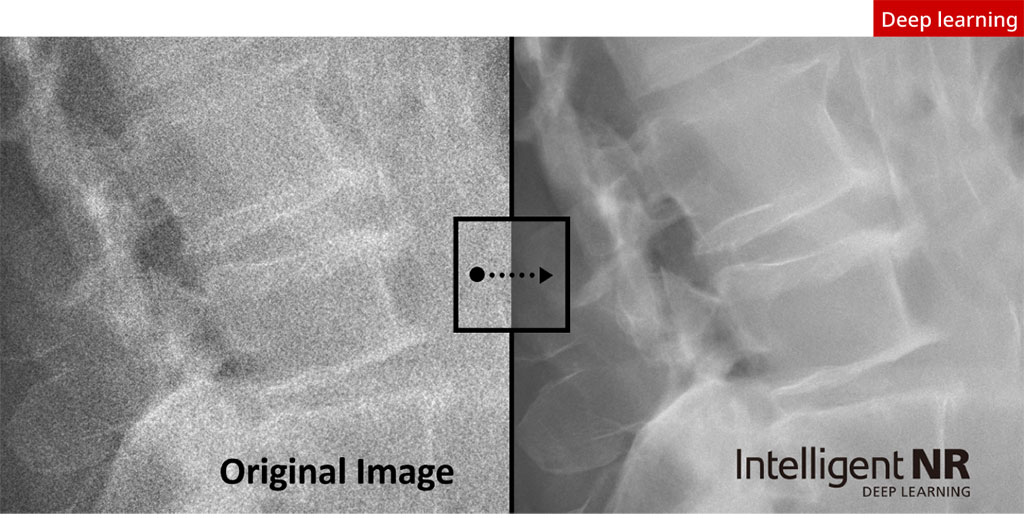AI-Driven DR System Produces Higher Quality Images While Limiting Radiation Doses in Pediatric Patients
Posted on 24 Nov 2023
Ionizing radiation is a fundamental element in producing diagnostic X-rays, yet it's widely acknowledged for its cancer risk potential. Digital projection radiography, a vital imaging modality, accounts for a significant portion of medical imaging and contributes to around 23% of yearly collective patient exposure to ionizing radiation. In healthcare, there's a constant effort to balance reducing ionizing radiation while maintaining the quality of diagnostic images. This balance is crucial as increasing one aspect should not compromise the other. A major challenge in achieving optimal exposure with high image quality is the presence of image noise, which tends to increase as the radiation dose decreases. This is especially crucial in pediatric patients who are more sensitive to radiation.
The integration of Deep Learning Neural Network (DLNN) Artificial Intelligence (AI) software in radiology has shown promising results in enhancing image quality and reducing radiation doses. DLNNs, trained on digital radiography images, can develop sophisticated algorithms to more effectively reduce image noise compared to traditional methods. In a new study, a radiograph device equipped with AI-powered DLNN has demonstrated improved image quality in pediatric X-rays. According to a white paper released by Canon Inc. (Tokyo, Japan), the study compared the company’s Intelligent Noise Reduction system with conventional radiography techniques and found significant enhancements in image quality accompanied by reduced radiation exposure.

The study evaluated 1,251 paired images taken with and without the Intelligent Noise Reduction System. Out of these, 995 were deemed superior, 250 were comparable, and only 6 were considered inferior when using the AI system. Remarkably, all images, including those captured at a 50% reduced radiation dose, were diagnostically adequate. During a six-week span, 559 standard dose radiographs from 229 patients were acquired. Subsequently, over the next four weeks, radiation doses were cut by 20%-25%, during which 212 images from 145 patients were gathered. Finally, 480 images were obtained with a 50% dose reduction. The study, however, faced limitations due to the singular location of Canon’s device and potential biases in clinician ratings, with one clinician evaluating over half of the radiographs.
Related Links:
Canon Inc.













